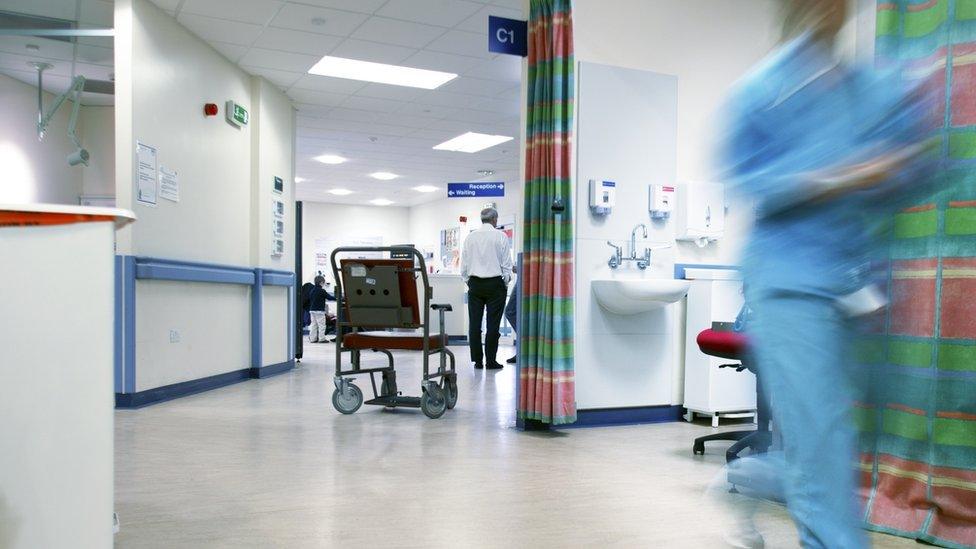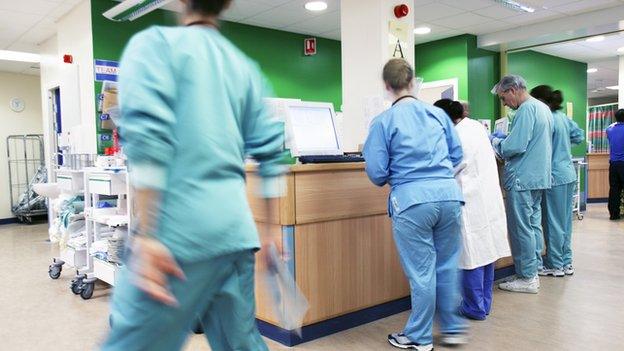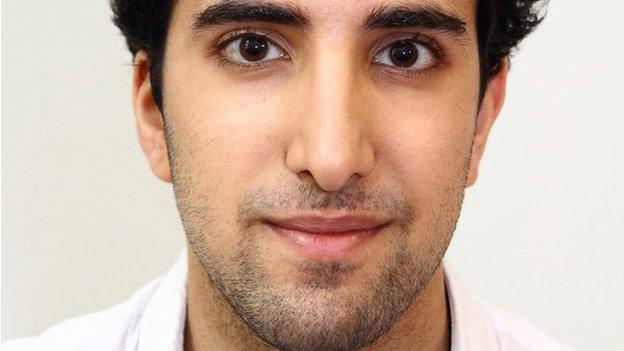Junior doctors plan protests - trouble at hospital mill?
- Published

Junior doctors are planning a street protest and their representatives are meeting to consider possible further action. Those in the medical profession on social media are in overdrive. Employers, in turn, accuse the doctors' union the British Medical Association of walking away from the negotiating table. So what's going on in this usually staid and conformist profession?
Junior doctors in England are outraged by what they say is a new contract which involves pay cuts of up to 30%, with overtime rates being scrapped for work between 7am and 10pm on every day apart from Sunday. They argue that after years of training and student debt this is a kick in the teeth which could result in a flight to medical jobs abroad or other professions.
One has written to the BBC with a bleak view of the impact of the contract changes on the profession: "The issue of cutting junior doctors' wages and increasing hours is the latest example of the Government pushing the service to the brink. As medicine is a globally transferable skill, more and more doctors will choose to work abroad instead of working for the life-crippling NHS."
Junior doctors' representatives at the British Medical Association will meet this weekend to discuss their next move. A ballot on industrial action has not been ruled out. Next week a group of junior doctors under the banner 'Save Our Contracts' plan to demonstrate outside a meeting to discuss the proposals convened by NHS Employers.

Its too early to judge whether there will be a ballot for action, let alone whether doctors would vote in favour. One junior doctor who contacted me gave this view of the mood amongst hospital colleagues: "There are already rumours and rumblings about the need for industrial action. This is a decision that no medic will take lightly, but I suspect that the government has pushed an already over-whelmed work force to the brink."
In an open letter to trainees, the Royal College of Paediatrics and Child Health has pledged its support for the junior doctors' case. The letter, with a stance surprisingly strident for a Royal College, states that "the imposition of this new contract, as currently presented, will adversely affect recruitment, retention and the morale of our trainee workforce."
The background to this dispute is complex. Back in 2012, the Department of Health called for changes to a junior doctors' contract which dated back to the late 1990's. The British Medical Association agreed to discuss terms and conditions for their members. After two years of talks, negotiations broke down. In August this year, the BMA refused to go back to the negotiating table, accusing the Government of a "heavy-handed" approach, and ministers then said a new contract would be imposed.
The Scottish and Welsh administrations, however, have said they will continue with current arrangements.
The employers argue that they are ready to negotiate based on principles drawn up by the doctors' and dentists' pay review body. Sources say by walking away from talks the BMA has passed up on the opportunity to get a reasonable deal for members. They deny there are any firm plans involving 30% pay cuts. The BMA says the sticking point is over the employers' refusal to budge on classifying Saturday shifts in the same way as weekday ones.
The case for contract reform is that there are inconsistencies in a highly complex system which can result in varied working hours in different trusts. For the most recently qualified junior doctors, basic pay is around £23,000 a year. There is a 50% annual top up for those who work one weekend in six but that applies both to those who are on call at home and those who spend both Saturdays and Sundays at work. This top up, known as banding, also involves an obligation to work unsocial hours at other times of the week. Some junior doctors are required to work one weekend in four to qualify for the 50% banding with a number even having to do one in two or three. Others receive a 20% banding payment, again, depending on their working hours schedule.
A more transparent system and with payment linked to responsibilities is what the employers' claim to be seeking. This would involve higher basic rates of pay than now, which would mean higher pension entitlements. While they acknowledge some doctors would lose out, they argue that some would gain.
NHS Employers is now planning a roadshow, putting the case for reform at a series of meetings with junior doctors. The organisation hopes that the rank and file may be more open to the idea of change than the BMA representatives. But these may be stormy sessions with the two sides apparently some distance apart.
- Published5 September 2015

- Published11 August 2015
